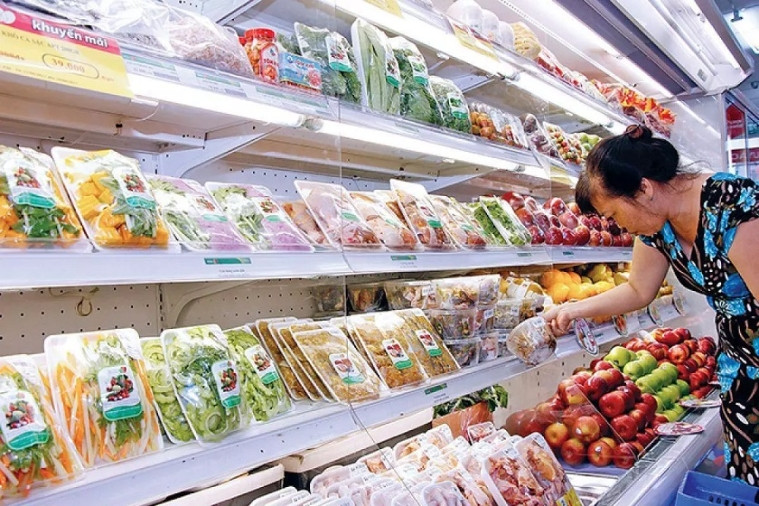
The oil price has reached 130 USD/barrel on the global market, while the coal price in early March 2022 doubled, and the gas price has also increased.
Energy is always a huge input cost for businesses. The increase in energy prices has pushed up production and business input prices such as freight, electricity, aluminum, iron and steel, cement, plastic, fiber, fertilizer, thereby pushing up prices of other goods and services.
Also, the supply chains that have been disrupted in the past two years also push up the cost of importing input materials. The cost of products and services rose from 5 -15% depending on each item in the first quarter of 2022.
It is said that, if the price of crude oil rises to US$150/barrel while the domestic prices of gasoline and oil do not cool down, Vietnam’s inflation in 2022 may exceed the target of 4%. Based on the market situation in the first two months of the year and forecasts for 2022, the Ministry of Finance also said that there are many potential risks for the implementation of the inflation control target for 2022.
According to the General Statistics Office, the consumer price index (CPI) in February increased by 1% compared to the previous month; an increase of 1.42% over the same period last year and an increase of 1.2% compared to December 2021. Thus, in the first two months of 2022, CPI increased by 1.68% over the same period last year, core inflation up by 0.67%.
However, according to expert Vu Vinh Phu, the General Statistics Office’s reflects only 60% of reality, because its basket of goods includes 500 essential items, while to meet the needs of life, there are thousands of items. This explains the reason why market prices surged, but CPI only increased by 1.68% year on year and core inflation up by only 0.67%.
How to prevent inflation
In the face of inflationary pressure, scenarios are developed: many banks would have to raise deposit rates. People will demand higher interest rates, to keep money in the bank, in the context of the price of gold and many other speculative assets increasing. Meanwhile, the capital demand in the economy is also on the rise, so the pressure to raise interest rates in the second quarter of 2022 in Vietnam is obvious.
Increasing interest rates can help curb inflation, but it will increase the input costs of businesses, so it is necessary to limit the use of capital leverage, as the cash flow provided to the economy and financial markets will reduce. Along with that, a lending interest rate increase may affect the effectiveness of the economic stimulus package issued recently by the Government.
Public investment will also be heavily affected, especially with ongoing large infrastructure projects. The prices for construction materials such as iron and steel, bricks, sand, stone, cement... have rocketed, putting great pressure on contractors. The cost of raw materials accounts for 65-70% of the estimated value of construction works, so a sharp increase in the price will make the cost of projects more expensive. If the price of construction materials remains high for a long time, investors and contractors will suffer heavy losses, and they may have to cease projects to wait for the price to decrease. Thus, the important driving force for economic growth will no longer exist.
With business and consumption activities in general, when businesses can no longer stand and have to increase selling prices, aggregate demand may be adversely affected and begin to stagnate or even decline. Even in the case that aggregate demand is maintained, costs will increase faster than selling prices, which will also push many businesses into difficulties and they may have to close. At that time, consumer and business confidence, boosted by the post-Covid economic recovery, will be hit hard. As a result, long-term demand, particularly in the last two quarters of 2022, will be strongly impacted. It is forecast that economic growth in 2022 will not be as optimistic as initially expected.
In order to prevent the negative effects caused by inflation, experts said that crude oil exports now contribute significantly to the State budget due to high prices. Revenue from crude oil in the first two months of 2022 reached approximately VND 8,100 billion, up 57.2% over the same period of last year. Therefore, this source can be used to support stabilizing gasoline prices in the country to limit inflation.
Expert Pham Nam Kim said it is necessary to ease the pressure on the poor, because inflation is a burden on low-income people. This requires an adjustment of budget expenditures and revenues to harmonize benefits, so that the poor are supported in terms of prices. Adjusting the growth target to reduce and increase inflation to an acceptable level, and trying to support the poor, the difficulties will be overcome.
Tran Thuy